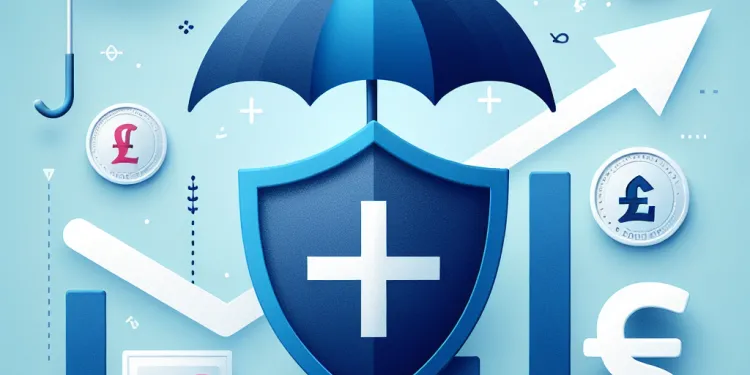
Find Help
More Items From Ergsy search
-
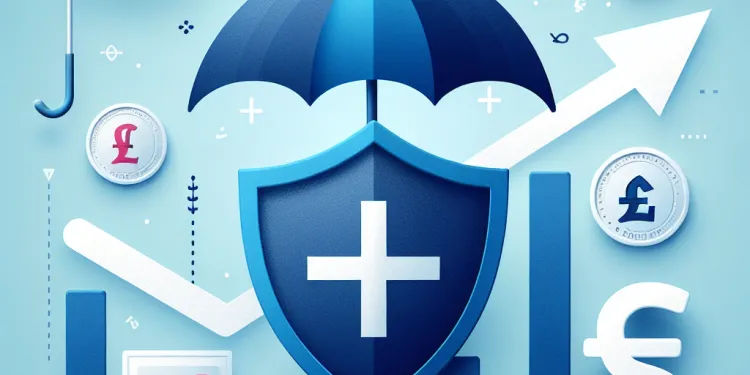
How can I protect myself from rising interest rates?
Relevance: 100%
-

Why do interest rates rise and fall?
Relevance: 87%
-
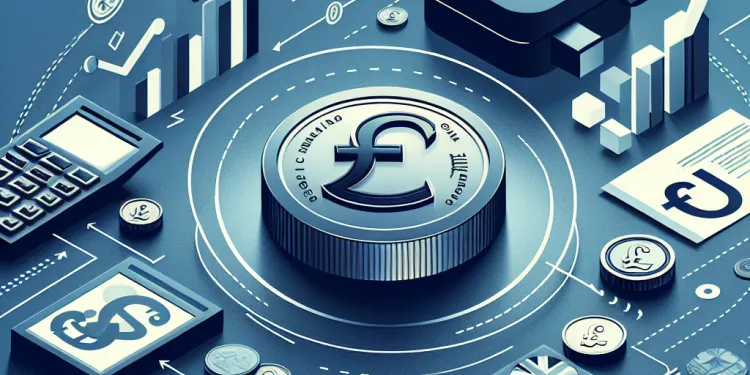
What happens to my monthly payments if interest rates rise?
Relevance: 83%
-
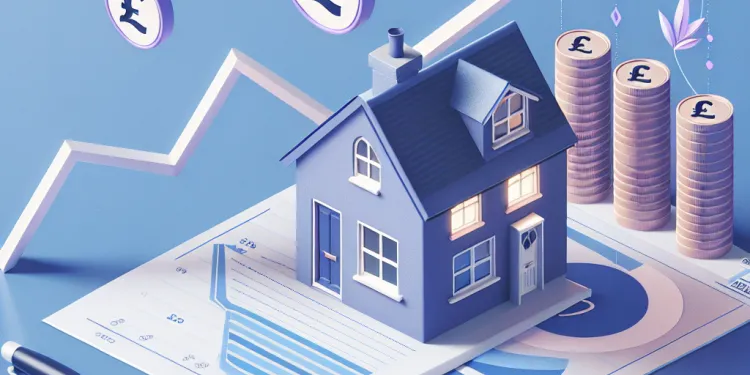
What should I do if I can't afford my mortgage payments due to rising interest rates?
Relevance: 70%
-

How do interest rate changes affect my mortgage payments?
Relevance: 68%
-
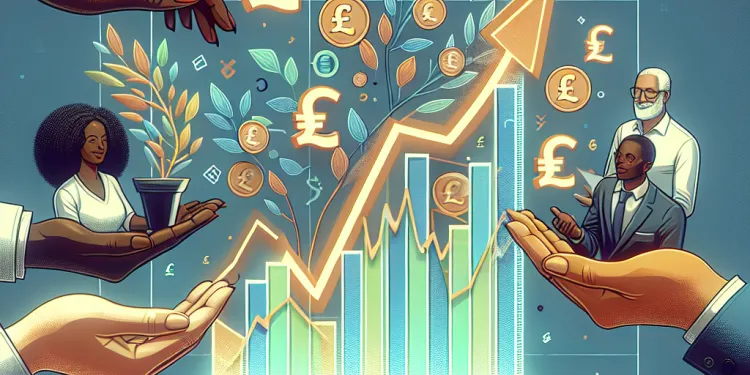
Major Banks Announce Changes in Interest Rates: Are You Affected?
Relevance: 62%
-
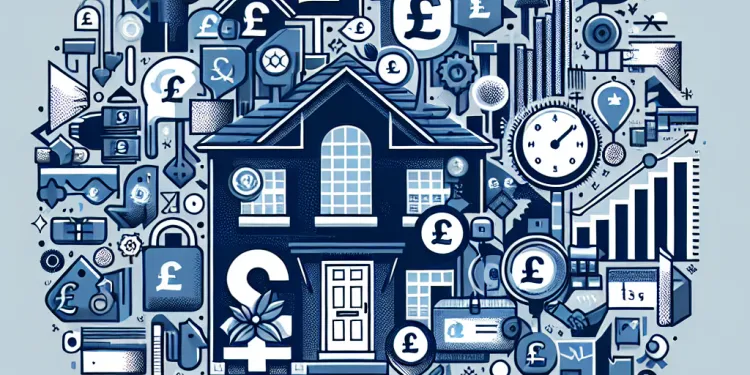
Are first-time buyers affected differently by interest rate changes?
Relevance: 62%
-
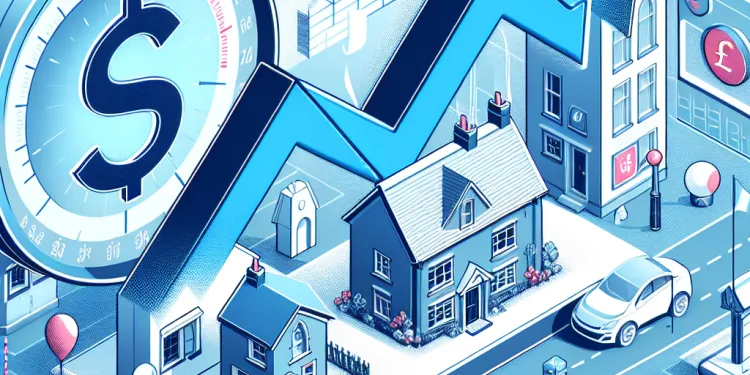
What is a tracker mortgage and how does it respond to interest rate changes?
Relevance: 60%
-
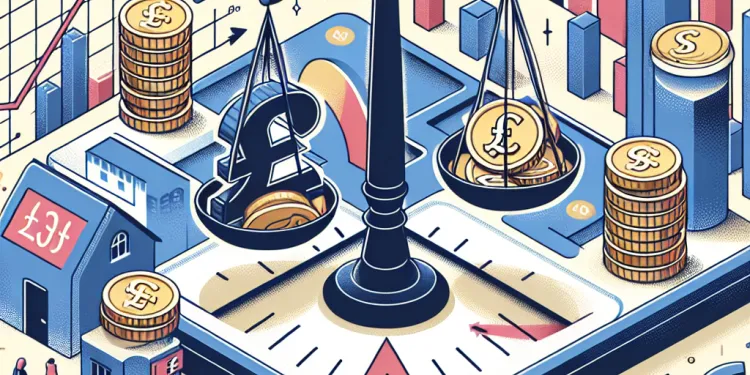
How do economic conditions influence interest rate changes?
Relevance: 59%
-

Will my fixed-rate mortgage payments change with interest rate fluctuations?
Relevance: 58%
-
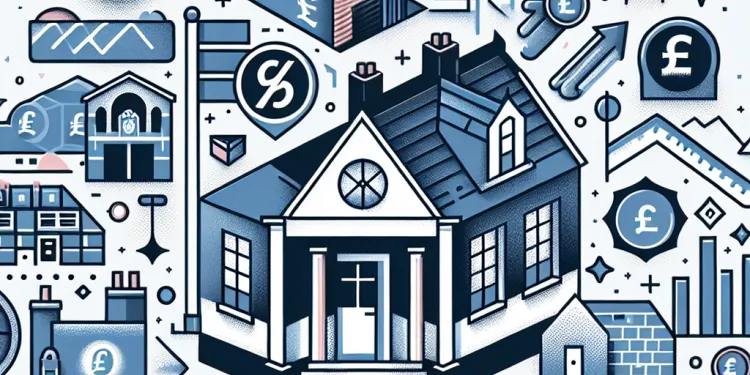
Can my lender change my interest rate without notification?
Relevance: 57%
-
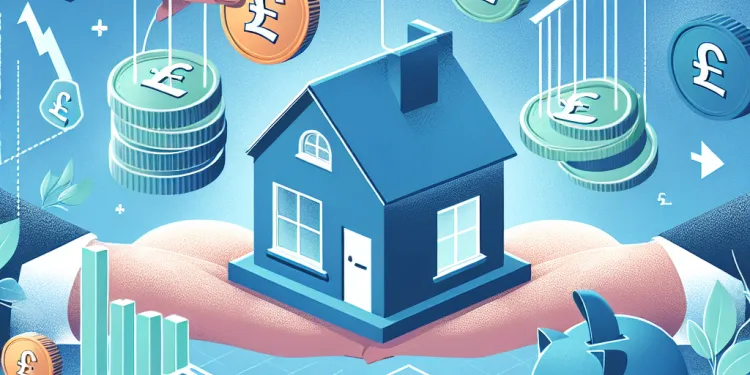
Is it possible to switch my mortgage type if interest rates become unfavourable?
Relevance: 56%
-

How do better interest rates help me save money?
Relevance: 55%
-
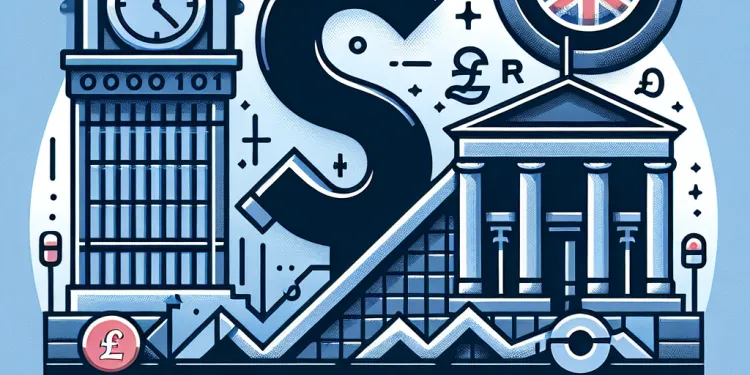
What is an SVR and how does it relate to interest rate changes?
Relevance: 54%
-
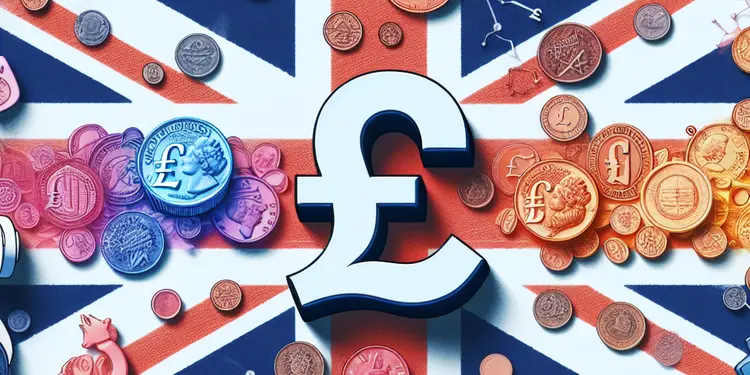
Can interest rates on student loans be reduced?
Relevance: 54%
-
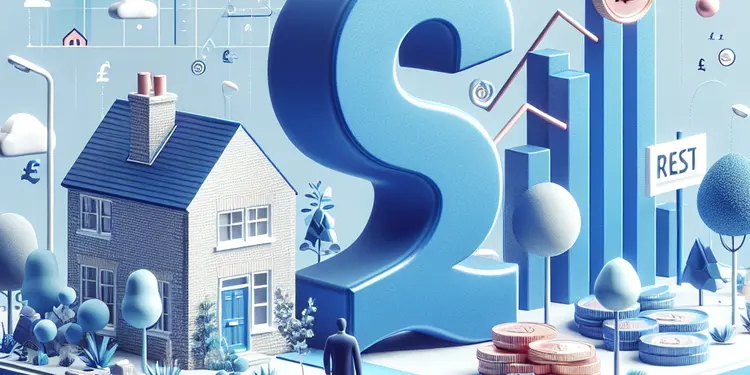
How do better interest rates help me save money?
Relevance: 52%
-

How does interest rate affect my car finance agreement?
Relevance: 50%
-
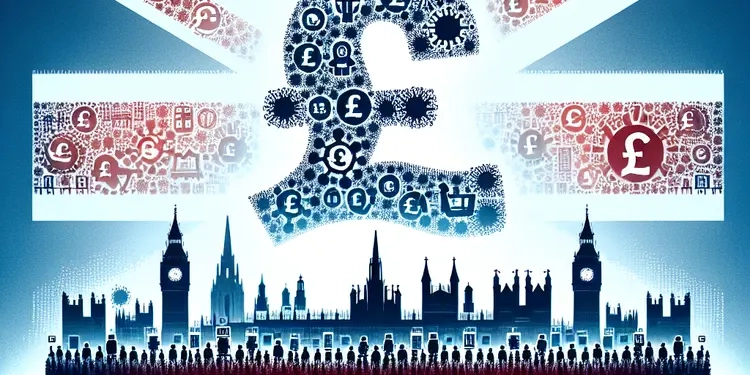
Are measles cases rising in the UK?
Relevance: 45%
-

What is causing the rise in measles cases in the UK?
Relevance: 41%
-
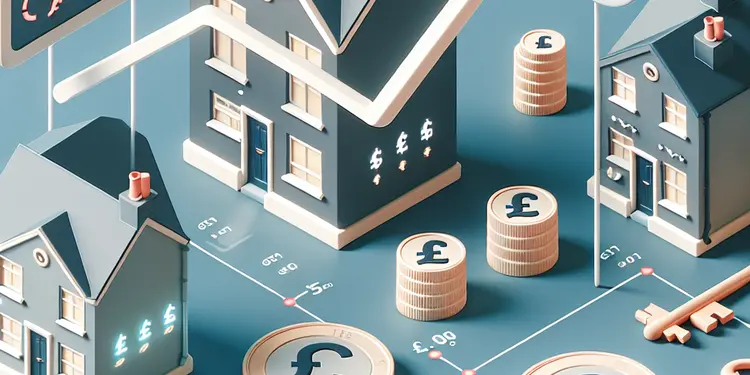
Rising Property Prices Fuel Concerns Over First-Time Buyer Accessibility
Relevance: 41%
-
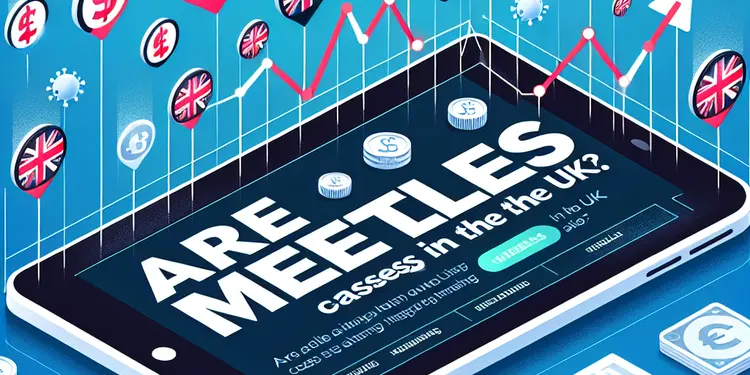
Are measles cases currently rising in the UK?
Relevance: 41%
-
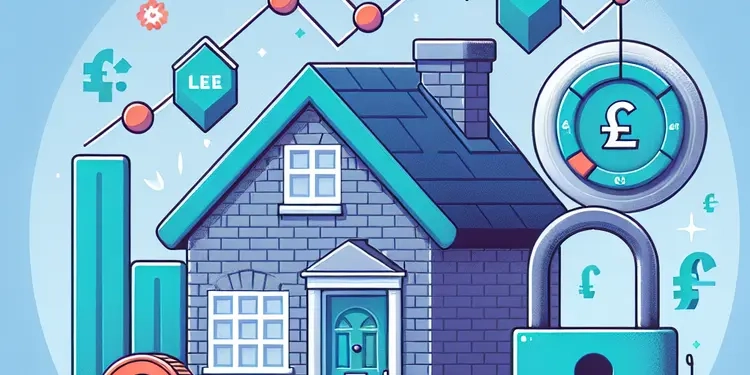
What does it mean to "Fix My Mortgage Rate"?
Relevance: 40%
-
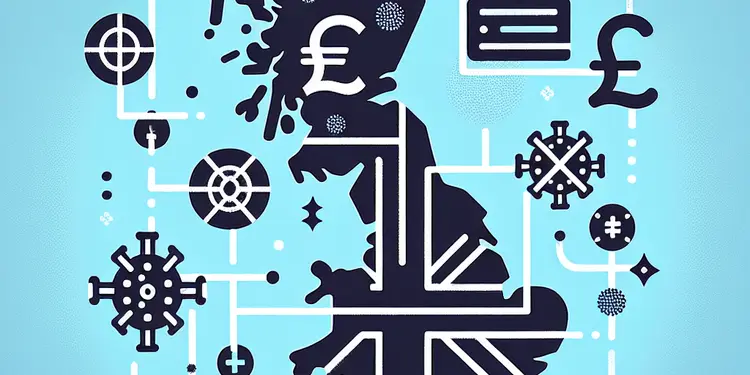
Is there a risk of global spread if measles cases rise in the UK?
Relevance: 38%
-
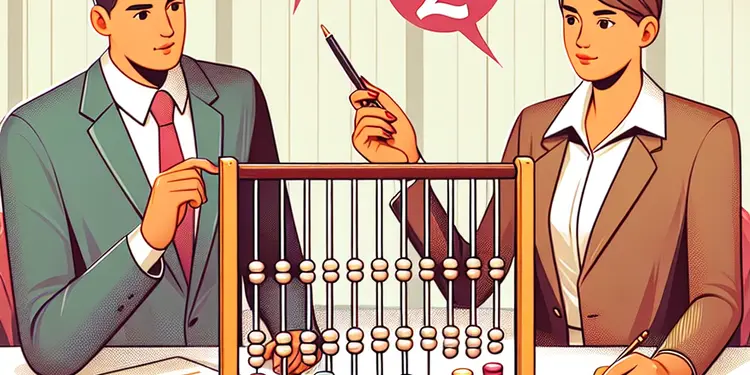
Is there any interest charged on a Time to Pay arrangement?
Relevance: 38%
-

What is an 'interest only' mortgage?
Relevance: 36%
-
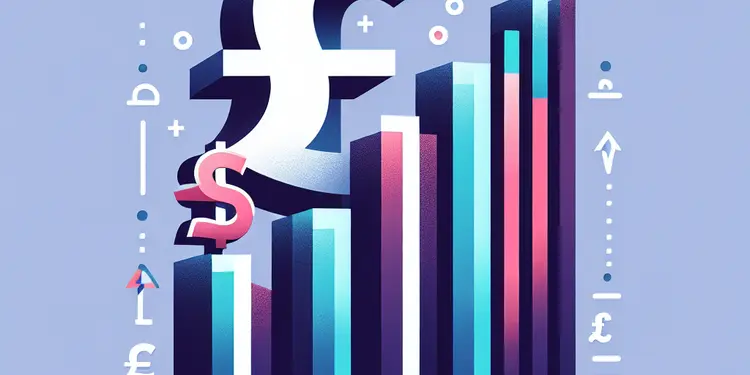
Will interest accrue during deferment?
Relevance: 36%
-
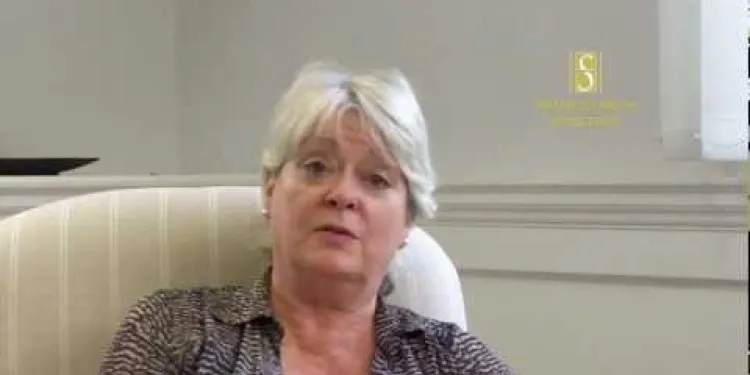
Court of Protection
Relevance: 36%
-
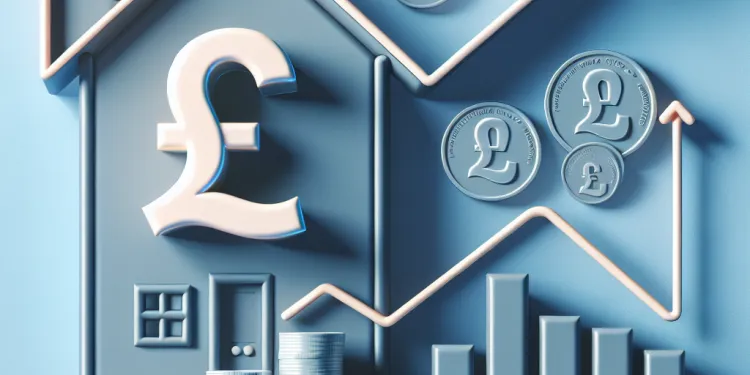
What is the relationship between rising rents and housing benefit cuts?
Relevance: 35%
-

How often do interest rates change?
Relevance: 34%
-
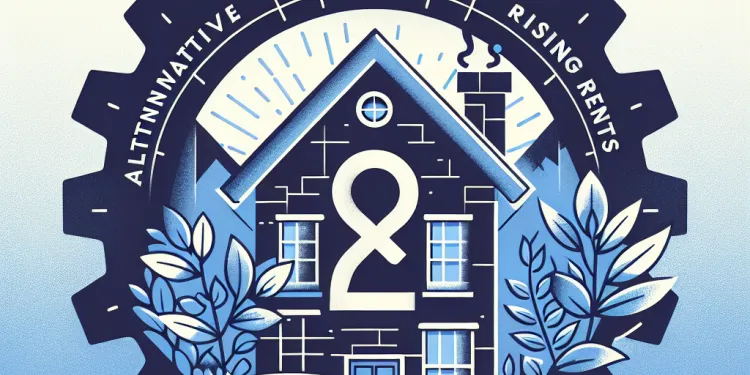
What alternative solutions are being discussed to combat rising rents?
Relevance: 34%
-

Impact of Rising Energy Costs on Family Budgets
Relevance: 34%
-

How Rising Living Costs Are Impacting Family Wellbeing
Relevance: 32%
-
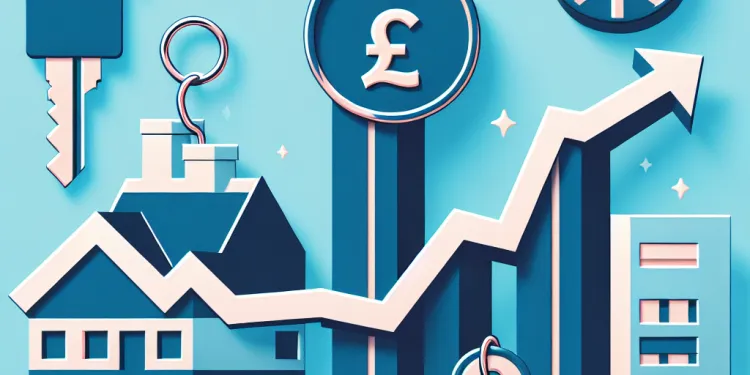
What are the proposed Cuts to Housing Benefits Amid Rising Rents?
Relevance: 32%
-

Impact of Rising Energy Prices on Household Budgets
Relevance: 32%
-

Impact of Rising Living Costs on Family Health
Relevance: 31%
-
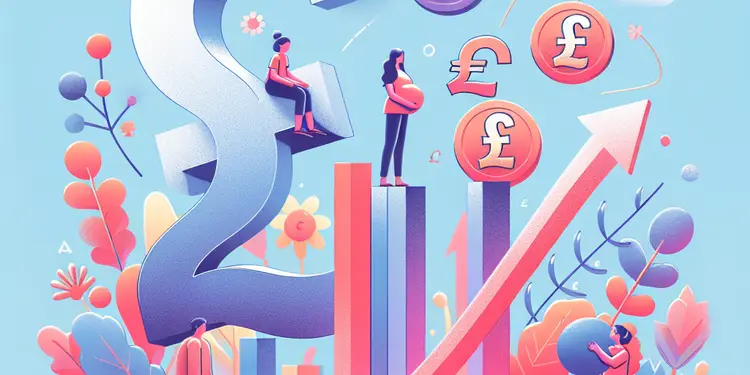
Study Finds Alarming Increase in Childhood Obesity Rates Post-Pandemic
Relevance: 31%
-
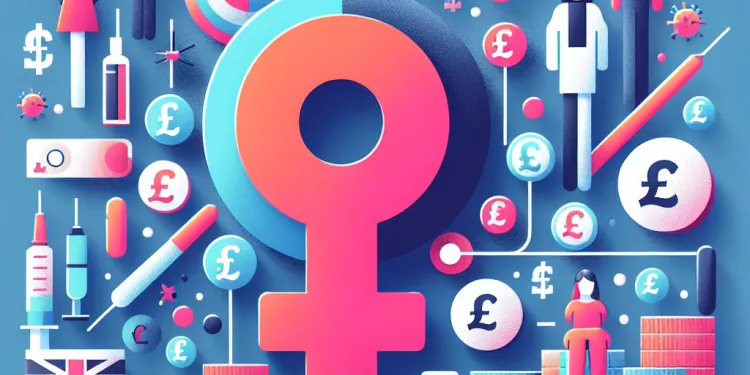
Surge in HPV Vaccination Rates Among Young Women in the UK
Relevance: 31%
-
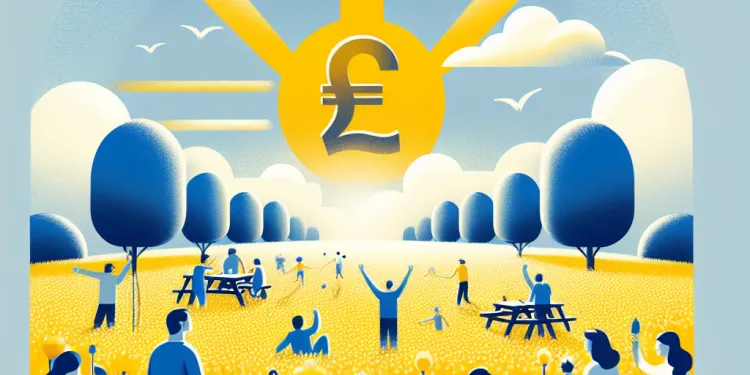
Why are experts warning of rising hay fever cases?
Relevance: 31%
-

Understanding the Impact of Rising Living Costs on Family Welfare
Relevance: 31%
-
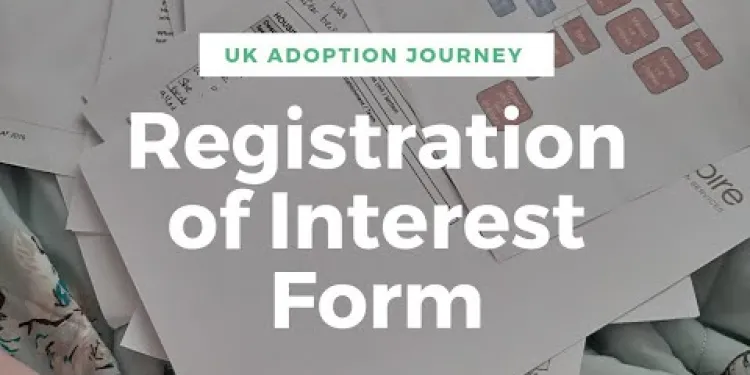
Registration of Interest Form | UK Adoption Journey
Relevance: 30%
Understanding Rising Interest Rates
Interest rates in the UK can impact personal and household finances in several ways. When interest rates rise, borrowing can become more expensive, affecting mortgages, personal loans, and credit card balances. On the other hand, savers might receive better returns on their deposits. Understanding these dynamics can help you make informed decisions to protect your finances.
Review and Fix Your Mortgage
For homeowners, one of the most significant concerns with rising interest rates is the cost of mortgage repayments. If you are on a variable rate or your fixed-rate deal is due for renewal, consider switching to a fixed-rate mortgage to lock in current rates. This move can provide certainty over your monthly repayments and guard against further rate rises. Speaking with a mortgage advisor could help you find the best deals available.
Reduce Outstanding Debt
As interest rates rise, the cost of servicing debt, such as credit card balances and personal loans, can also increase. It's wise to focus on reducing high-interest debt first. Consider transferring balances to lower-interest options, such as a 0% balance transfer credit card, if possible. Prioritise paying off existing debts to reduce the amount of interest you pay overall.
Increase Savings and Emergency Funds
While rising interest rates can increase borrowing costs, they can also offer better returns on savings. Consider increasing your savings to benefit from higher interest rates offered by banks. Building a robust emergency fund can also provide a financial cushion in case of unforeseen expenses or financial pressures caused by rising rates.
Budgeting and Expense Management
In the face of rising interest rates, examining and adjusting your household budget is crucial. Identify areas where you can cut unnecessary expenses and redirect those savings towards debt repayment or savings. A detailed budget can help you manage your cash flow more effectively, ensuring you can meet financial obligations without strain.
Explore Alternative Investment Options
Higher interest rates can affect investment returns differently across asset classes. While some investments might suffer, others could benefit. It's vital to review your investment portfolio to ensure it's well-positioned to withstand rate changes. Consulting an independent financial advisor can provide insights into diversification strategies or alternative investments that could perform well in a rising rate environment.
Stay Informed and Seek Professional Advice
Staying informed about economic trends and potential future interest rate changes can help you proactively manage your finances. Regularly review your financial situation and consider seeking advice from a financial advisor for tailored advice. They can guide you in making decisions based on your personal financial situation and long-term goals.
Understanding Rising Interest Rates
Interest rates in the UK are important because they affect how much money you have. When interest rates go up, borrowing money becomes more expensive. This means things like mortgages, personal loans, and using credit cards can cost more. But, if you save money, you might earn more. Understanding interest rates can help you make good choices about your money.
Review and Fix Your Mortgage
If you own a home, higher interest rates can make paying your mortgage more costly. If you have a mortgage rate that can change or is ending soon, think about switching to a fixed rate. This means your monthly payments stay the same. A mortgage advisor can help you find the best deal.
Reduce Outstanding Debt
When interest rates go up, paying off debt like credit cards and personal loans can get pricier. It's smart to pay off debts with the highest interest first. You might move your debt to a card with lower or zero interest, if you can. This way, you can save money by paying less in interest.
Increase Savings and Emergency Funds
Higher interest rates can also mean more money from savings. Try to save more so you can earn interest from the bank. It’s also good to have an emergency fund. This is money set aside for unexpected costs or if you need extra financial help when rates rise.
Budgeting and Expense Management
When interest rates go up, you should look at how you spend your money. Find things you can cut back on and use that money to pay off debt or save more. A good budget helps you handle your money well so you can pay for what you need without stress.
Explore Alternative Investment Options
Interest rates can change how much money you earn from investments. Some might lose value, while others could gain. Look at your investments to make sure they're ready for changes. A financial advisor can help you with different ways to invest or spread your money out.
Stay Informed and Seek Professional Advice
Keep up with news about the economy and interest rates. This helps you plan your money better. Check your financial situation often. Getting help from a financial advisor can be useful. They can give advice that's right for you and your money goals.
Frequently Asked Questions
What are some short-term strategies to protect myself from rising interest rates?
Consider switching to a fixed-rate loan, reducing variable rate debt, and reviewing your budget to accommodate potential changes in interest payments.
How can refinancing help in a rising interest rate environment?
Refinancing to a fixed-rate mortgage can lock in current interest rates, protecting you from future increases.
What is an interest rate cap and how can it be useful?
An interest rate cap limits how much the interest rate on a variable rate loan can increase, protecting your monthly payments from significant hikes.
Why should I consider adjusting my investment portfolio?
Adjusting your investment portfolio to include more fixed-income securities with shorter durations can help minimize interest rate risk.
Can increasing savings help in managing rising interest rates?
Yes, building an emergency fund can help you manage higher expenses due to rising interest rates.
How does paying off debt help protect against rising interest rates?
Paying off debt, especially variable-rate debt, can reduce your exposure to rising interest costs.
What role does credit score play in interest rate protection?
A higher credit score can qualify you for better interest rates, even as the overall rate environment rises.
Is it wise to delay large purchases during rising interest rates?
Delaying large purchases that require financing can be advantageous if you expect interest rates to stabilize or decrease later.
How can diversifying investments protect against rising rates?
Diversifying your investments across various asset classes can help mitigate risk associated with rising interest rates.
What impact do rising interest rates have on bonds?
As interest rates rise, bond prices typically fall, affecting the value of your bond investments.
Should I consider adjustable-rate mortgages in a rising rate environment?
Adjustable-rate mortgages might be risky as their rates can increase, leading to higher payments; fixed-rate options might be safer.
How can budgeting help mitigate the effects of rising interest rates?
Budgeting can help you identify areas to cut back on expenses, freeing up funds to manage higher interest payments.
What is the benefit of increasing income in the face of rising rates?
Increasing your income, perhaps through side gigs or raises, can provide additional funds to offset higher borrowing costs.
Can locking in a fixed rate on personal loans help?
Yes, locking in a fixed rate on personal loans can provide certainty in monthly payments despite rate hikes.
How does paying more than the minimum on loans help?
Paying more than the minimum reduces the principal faster, decreasing the interest paid over time.
Are there protective financial products available?
Yes, you can explore financial products designed to hedge against interest rate hikes, such as interest rate swaps.
What are Treasury Inflation-Protected Securities (TIPS)?
TIPS are government bonds that adjust with inflation, providing a hedge against both rising rates and inflation.
How can certificates of deposit (CDs) be advantageous?
CDs offer fixed returns and can protect your savings from fluctuating interest rates if locked at a favorable rate.
Should I consider reducing discretionary spending?
Reducing discretionary spending can free up funds to handle any increase in monthly obligations due to rate hikes.
What is the impact of rising rates on home equity lines of credit (HELOCs)?
Rising rates typically increase the cost of borrowing with HELOCs, so paying these down can reduce interest expenses.
How can I protect myself from rising interest rates right now?
Here are some ways to keep yourself safe from rising interest rates:
- Make a budget: Write down what you earn and what you spend. This helps you see where your money goes.
- Pay off debt: If you owe money, try to pay it back as soon as you can. Start with the debts that have the highest interest.
- Save more: Put a little extra money into your savings if you can. It gives you a safety net.
- Consider fixed-rate loans: If you need to borrow money, look for loans where the interest rate stays the same. It helps you know exactly what you will pay.
Here are some tools to help you:
- Use a calculator to help with your budget.
- Download a money managing app on your phone.
These simple steps can help you feel more in control of your money.
Think about changing to a loan with a fixed rate. Try to lower any loans where the interest can change. Look at your spending plan to see if you can handle changes in interest payments.
Here are some ways to help understand:
- Use a calculator to see how much money you have and how much you spend.
- Ask someone you trust to talk about money with you.
- Write down your money plans to make them clearer.
How can refinancing help when interest rates are going up?
Refinancing is when you change your loan to a new one. It can help you spend less money.
If interest rates are getting higher, refinancing can save you money by:
- Getting a lower interest rate than your old loan.
- Changing your loan to a fixed rate, so payments stay the same.
- Making payments easier to manage.
Tools like loan calculators can help you see how much you can save. You can also talk to a financial advisor for help.
If you change your loan to a fixed-rate one, you can keep the current interest rate. This means the rate won't go up in the future.
What is an interest rate cap and how can it help?
An interest rate cap is the highest number that your loan's interest can reach. It makes sure your interest won't go above a certain amount. This can help you plan how much money you need to pay back.
Using an interest rate cap can be helpful because:
- It keeps your payments from getting too big.
- It can help you feel less worried about how much you owe.
- It can make it easier to know how much money you need each month.
To understand more about your loan, you can:
- Ask a family member or friend to explain it to you.
- Use drawings or things you can touch to show how the cap works.
An interest rate cap is a protection. It stops the interest you pay on a loan from going up too much. This helps keep your monthly payments from getting too high.
Why should I think about changing my investment choices?
Here are some reasons to think about:
- Safety: Make sure your money is safe as things change in the world.
- Goals: Check if your investments match what you want for the future.
- Growth: Help your money grow by choosing the right things to invest in.
- Help: Talk to someone who knows about money for advice.
Using pictures or apps to show how money grows can help you understand better.
You can change your money plan to be safer. Buy more things like bonds that pay interest. Pick ones that end soon. This way, you can make sure your money does not lose too much if interest rates change.
Can saving more money help with higher interest rates?
Saving money can help when interest rates go up. Here are some tips:
- Try to save a little bit each week or month.
- Use a jar or a piggy bank to see your savings grow.
- Ask an adult for help to set up a bank account.
Counting your savings can make you feel good and help you get ready for the future.
Yes, saving money for emergencies can help you pay for things that cost more when interest rates go up.
How can paying off debt help if interest rates go up?
When you pay off what you owe, you can worry less about extra charges if interest rates get higher.
Here's how it helps:
- If you have no debt, you don't need to pay extra money if rates go up.
- Less debt means more money in your pocket for things you need or want.
Helpful tip: Use a calculator to see how paying a little extra each month can reduce your debt faster.
Paying off money you owe, especially if the amount you owe can change, can help you avoid paying more money because of higher interest.
How does a credit score help with protecting interest rates?
Your credit score is a number that shows how good you are at paying back money. It helps lenders decide if they should give you a loan or credit card.
A good credit score can get you lower interest rates. This means you pay less money back over time.
If your credit score is low, you might have to pay higher interest rates. This means you pay more money back.
To get a better credit score, you can:
- Pay your bills on time.
- Use only a small part of your credit limit.
- Check your credit report for mistakes.
Using these tips can help you save money on loans and credit cards.
If your credit score is higher, you can get better interest rates, even if interest rates are going up.
Here are some tips that can help you understand better:
- Credit Score: This is a number that tells banks how good you are at paying back money.
- Interest Rate: This is extra money you have to pay when you borrow money.
Try these tools and techniques:
- Use a calculator to compare different interest rates.
- Ask a family member or friend if you need help understanding.
- Look for simple videos online that explain credit scores and interest rates.
Should you wait to buy big things when interest rates go up?
Waiting to buy big things that need a loan can be a good idea if you think the loan costs will go down or stay the same soon.
How can different investments help keep your money safe when rates go up?
Spreading your money across different types of investments can help protect you when interest rates go up.
How do rising interest rates affect bonds?
When interest rates go up, it can change the value of bonds. Here’s how it works:
- If interest rates rise, new bonds pay more money. This can make older bonds less valuable because they pay less.
- People might want to buy new bonds instead of older ones. This can lower the price of older bonds.
To understand this better, you can:
- Watch simple videos about bonds and interest rates.
- Use apps that explain money matters in an easy way.
When interest rates go up, bond prices usually go down. This can change how much your bonds are worth.
Is it a good idea to choose a mortgage with changing rates when interest rates are going up?
Adjustable-rate mortgages can be risky because their rates might go up. This means you could pay more money each month. Fixed-rate mortgages might be safer because the amount you pay stays the same.
How can making a budget help with higher interest rates?
Making a budget is like a plan for your money.
Here's how it can help:
- Know Your Money: Write down how much money you get and how much you spend. This way, you know where your money goes.
- Save for Important Things: Set aside money for important things like bills or school. This helps you not worry too much when things cost more.
- Reduce Spending: Find things you don't need to buy so you can save more money.
- Avoid More Debt: Try to spend only the money you have. This stops you from borrowing too much, which can cost more with high interest rates.
Here's a tool to help:
- Calculator: Use a calculator to help add up your money and spending. This can make budgeting easier.
Making a budget can help you see where to spend less money. This way, you will have more money to pay for things that cost more.
Why is it good to earn more money when prices go up?
If things cost more, earning more money can help you pay for them. It's like having more coins to buy the things you need.
You can make more money by getting extra jobs or asking for a raise at your current job. This extra money can help you pay for things that cost more because of borrowed money.
Can choosing a fixed rate for personal loans be helpful?
A fixed rate means that the amount you pay each month will stay the same. It won't change.
Here’s how a fixed rate can help:
- It makes it easier to plan your money. You know exactly what you need to pay every month.
- You won’t be surprised by sudden changes in the amount you owe.
Here are some things you can do for more help:
- Use a calculator to check how much you need to pay.
- Ask a trusted adult or friend for advice.
- Make a budget plan to see how much money you have and how much you spend.
Yes, choosing a loan with a fixed rate means your monthly payments won't change, even if other rates go up. This can help you plan better.
Why is it good to pay more on loans?
If you pay more than the smallest amount, you will pay off your debt faster. This means you will have to pay less interest in the long run.
Are there money safety products you can buy?
Yes, you can look at special financial products that help protect against interest rate increases, like interest rate swaps.
What are Treasury Inflation-Protected Securities (TIPS)?
Treasury Inflation-Protected Securities, or TIPS, are a type of government bond. A bond is like a loan you give to the government. The government promises to pay you back with extra money later.
TIPS are special because they help protect your money from inflation. Inflation is when prices for things like food and toys go up. When inflation happens, your money can buy less than before. TIPS are designed to keep up with inflation, so your money keeps its value over time.
If you're interested in learning more, you can use tools like online videos or talk to a financial advisor. These can help you understand how TIPS work.
TIPS are a type of government loan. They change when prices go up, so they help keep your money safe when things get more expensive.
Why are certificates of deposit (CDs) good?
Certificates of deposit, or CDs, can help you save money. Here is why they are good:
- Safe savings: Your money is secure in a bank with a CD.
- More interest: You earn more money compared to a regular savings account.
- Easy planning: You know when you will get your money back.
Tip: Talk to a bank worker to learn about CDs. You can also use a calculator to see how much money you can earn.
CDs help you save money safely. They give you the same amount of extra money (interest) over time. If you find a good rate, your money won’t be affected by interest rate changes.
Should I spend less on extra things I want?
If you spend less money on things you don't really need, you can have more money to pay bills if prices go up.
How do higher interest rates affect home equity lines of credit (HELOCs)?
When interest rates go up, it can cost more to borrow money. This means your HELOC payments might get bigger. You may need to pay more each month.
To help understand this, you can use a calculator that shows how much you will pay. You can also ask someone you trust, like a family member or a financial advisor, to explain it to you.
When rates go up, it costs more money to borrow with HELOCs. Paying off HELOCs can save you money on interest.
Useful Links
This website offers general information and is not a substitute for professional advice.
Always seek guidance from qualified professionals.
If you have any medical concerns or need urgent help, contact a healthcare professional or emergency services immediately.
Some of this content was generated with AI assistance. We’ve done our best to keep it accurate, helpful, and human-friendly.
- Ergsy carfully checks the information in the videos we provide here.
- Videos shown by Youtube after a video has completed, have NOT been reviewed by ERGSY.
- To view, click the arrow in centre of video.
- Most of the videos you find here will have subtitles and/or closed captions available.
- You may need to turn these on, and choose your preferred language.
- Go to the video you'd like to watch.
- If closed captions (CC) are available, settings will be visible on the bottom right of the video player.
- To turn on Captions, click settings .
- To turn off Captions, click settings again.
More Items From Ergsy search
-

How can I protect myself from rising interest rates?
Relevance: 100%
-

Why do interest rates rise and fall?
Relevance: 87%
-

What happens to my monthly payments if interest rates rise?
Relevance: 83%
-

What should I do if I can't afford my mortgage payments due to rising interest rates?
Relevance: 70%
-

How do interest rate changes affect my mortgage payments?
Relevance: 68%
-

Major Banks Announce Changes in Interest Rates: Are You Affected?
Relevance: 62%
-

Are first-time buyers affected differently by interest rate changes?
Relevance: 62%
-

What is a tracker mortgage and how does it respond to interest rate changes?
Relevance: 60%
-

How do economic conditions influence interest rate changes?
Relevance: 59%
-

Will my fixed-rate mortgage payments change with interest rate fluctuations?
Relevance: 58%
-

Can my lender change my interest rate without notification?
Relevance: 57%
-

Is it possible to switch my mortgage type if interest rates become unfavourable?
Relevance: 56%
-

How do better interest rates help me save money?
Relevance: 55%
-

What is an SVR and how does it relate to interest rate changes?
Relevance: 54%
-

Can interest rates on student loans be reduced?
Relevance: 54%
-

How do better interest rates help me save money?
Relevance: 52%
-

How does interest rate affect my car finance agreement?
Relevance: 50%
-

Are measles cases rising in the UK?
Relevance: 45%
-

What is causing the rise in measles cases in the UK?
Relevance: 41%
-

Rising Property Prices Fuel Concerns Over First-Time Buyer Accessibility
Relevance: 41%
-

Are measles cases currently rising in the UK?
Relevance: 41%
-

What does it mean to "Fix My Mortgage Rate"?
Relevance: 40%
-

Is there a risk of global spread if measles cases rise in the UK?
Relevance: 38%
-

Is there any interest charged on a Time to Pay arrangement?
Relevance: 38%
-

What is an 'interest only' mortgage?
Relevance: 36%
-

Will interest accrue during deferment?
Relevance: 36%
-

Court of Protection
Relevance: 36%
-

What is the relationship between rising rents and housing benefit cuts?
Relevance: 35%
-

How often do interest rates change?
Relevance: 34%
-

What alternative solutions are being discussed to combat rising rents?
Relevance: 34%
-

Impact of Rising Energy Costs on Family Budgets
Relevance: 34%
-

How Rising Living Costs Are Impacting Family Wellbeing
Relevance: 32%
-

What are the proposed Cuts to Housing Benefits Amid Rising Rents?
Relevance: 32%
-

Impact of Rising Energy Prices on Household Budgets
Relevance: 32%
-

Impact of Rising Living Costs on Family Health
Relevance: 31%
-

Study Finds Alarming Increase in Childhood Obesity Rates Post-Pandemic
Relevance: 31%
-

Surge in HPV Vaccination Rates Among Young Women in the UK
Relevance: 31%
-

Why are experts warning of rising hay fever cases?
Relevance: 31%
-

Understanding the Impact of Rising Living Costs on Family Welfare
Relevance: 31%
-

Registration of Interest Form | UK Adoption Journey
Relevance: 30%


